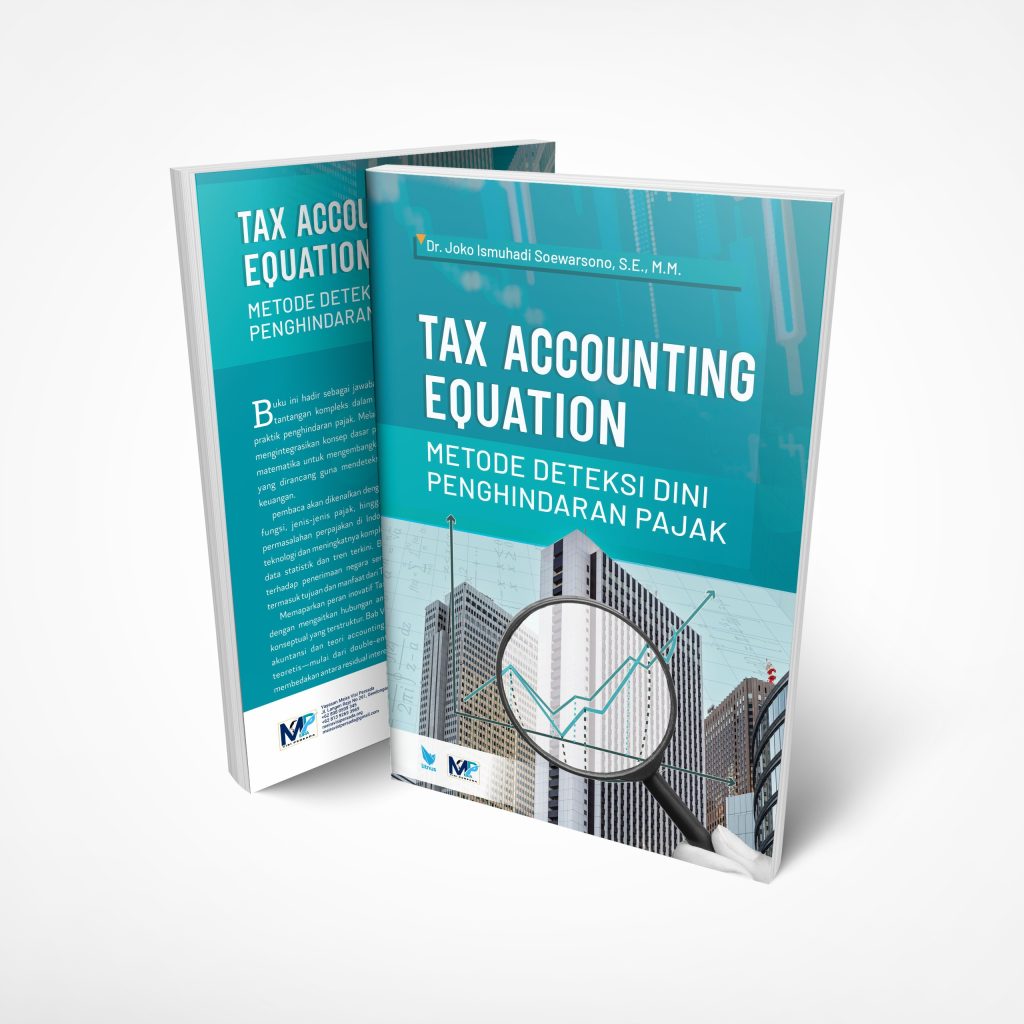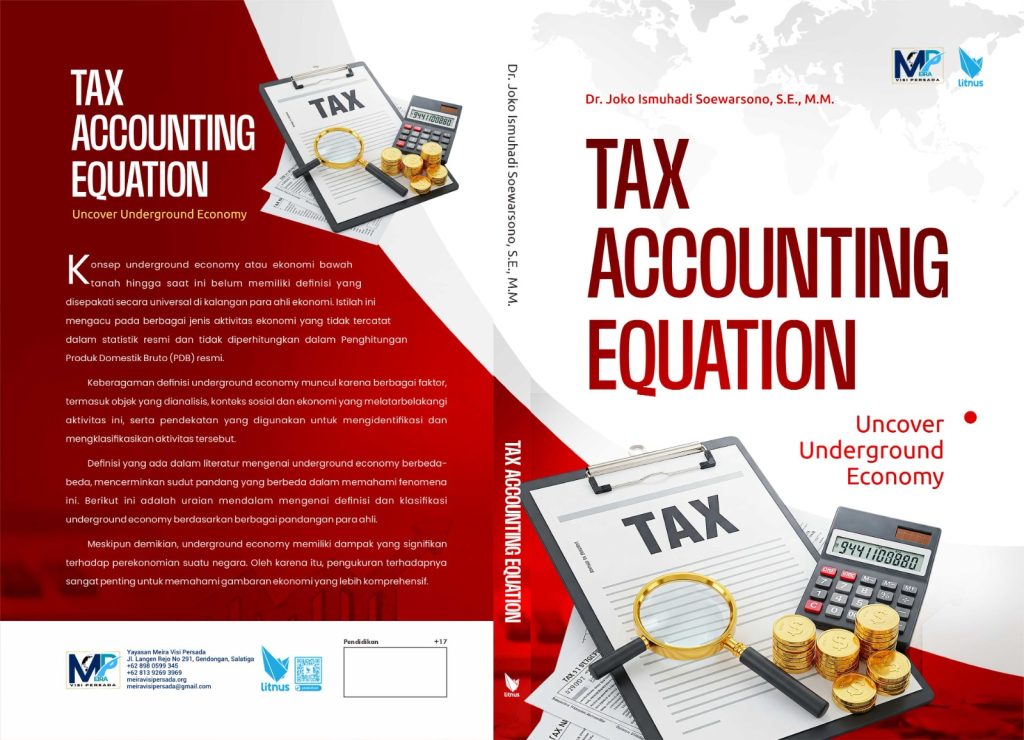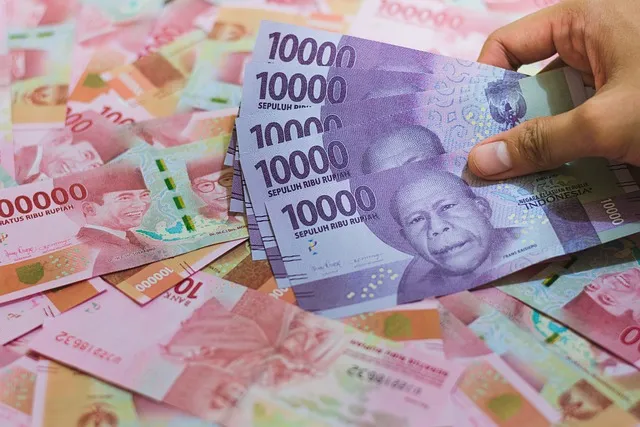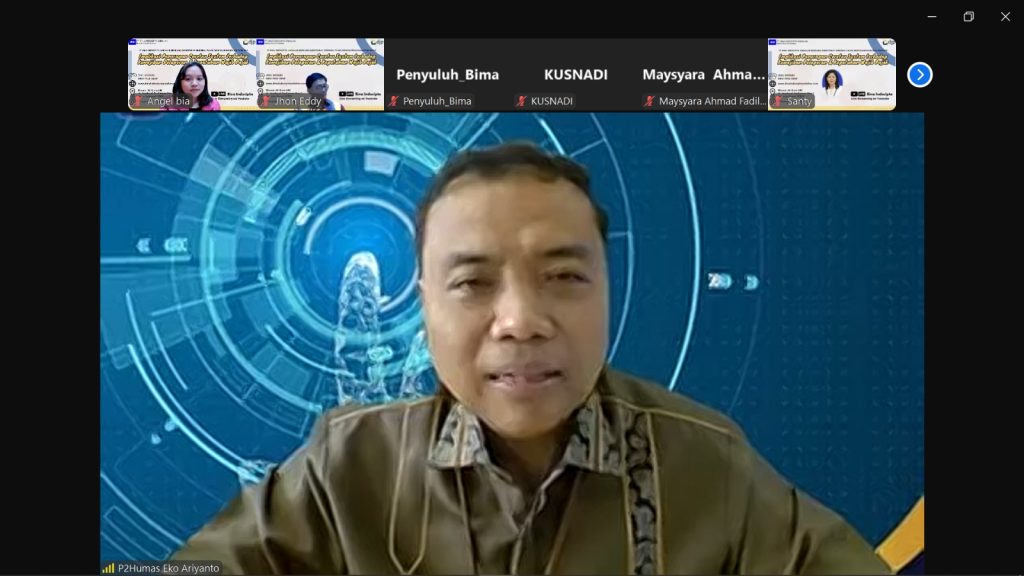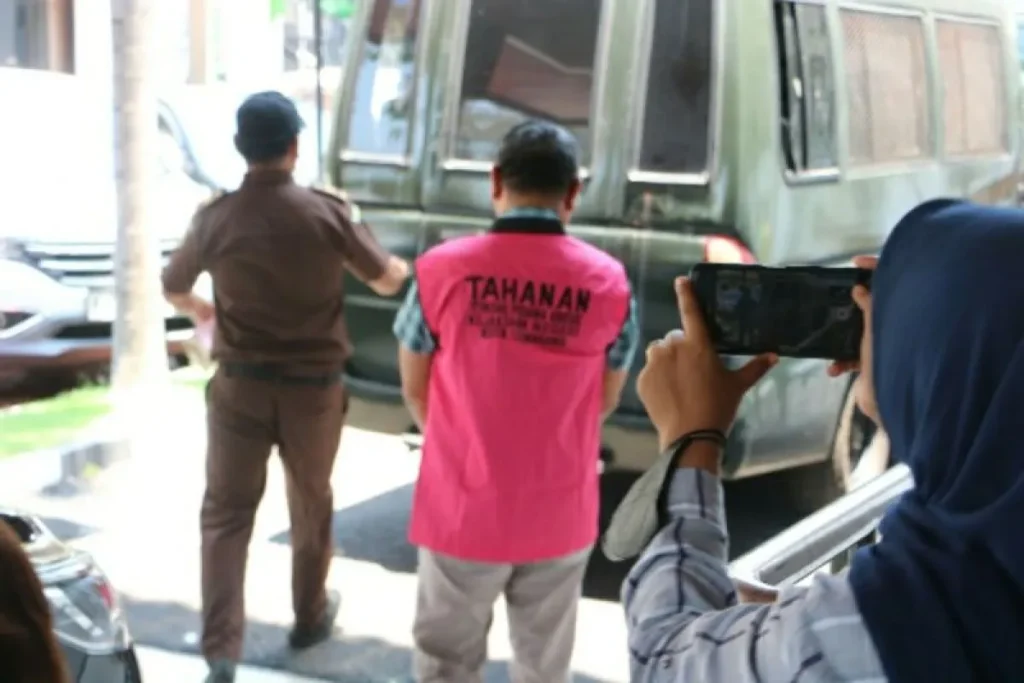
Corporate Financial Crime in Indonesia: An Analysis of Dr. Joko Ismuhadi Soewarsono’s Recent Work
- Ekonomi
Tuesday, 08 April 2025 07:41 WIB
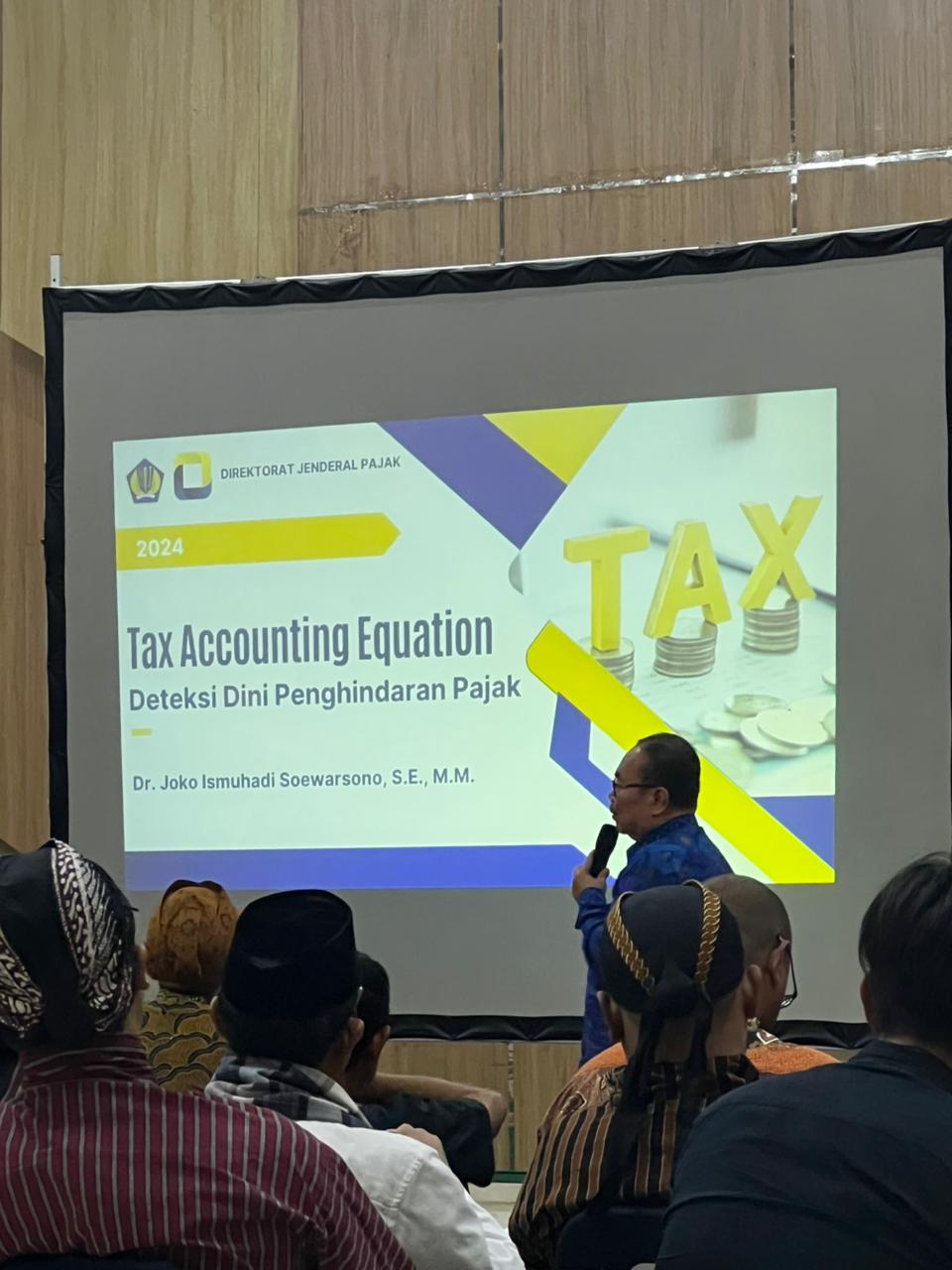
Jakarta, fiskusnews.com:
1. Introduction: The Imperative to Combat Corporate Financial Crimes in Indonesia
The issue of corporate financial crime, encompassing tax manipulation and money laundering, presents a significant challenge to Indonesia’s economic stability and societal well-being. The substantial financial losses incurred through these illicit activities undermine the state’s capacity to fund essential public services and development initiatives, hindering overall progress. The ramifications extend beyond mere economic impact, often exhibiting interconnectedness with other serious offenses, notably corruption, thereby creating a complex web of criminal activity. Indonesia’s commitment to addressing these threats is evident in its membership in the Financial Action Task Force (FATF), a global body setting standards for combating money laundering and terrorist financing. This membership underscores the nation’s dedication to aligning with international best practices in this crucial domain. Furthermore, the recent enactment of Indonesia’s New Criminal Code signifies a domestic effort to modernize its criminal justice system, including a formal recognition of corporate criminal liability, which holds considerable promise for strengthening the framework against corporate financial offenses.
Dr. Joko Ismuhadi Soewarsono, an expert in this intricate field, has made significant contributions through his scholarly work. His doctoral research at Universitas Borobudur specifically focused on the critical area of handling tax manipulation by corporations in the context of tax crime and money laundering. This in-depth academic inquiry culminated in the publication of his book, “Tindak Pidana Korporasi: Analisis Manipulasi Pajak dengan Perbuatan Pencucian Uang” (Corporate Crime: Analysis of Tax Manipulation with Money Laundering Acts). His affiliation with Padjadjaran University further solidifies his position as a knowledgeable voice in this domain. Dr. Joko’s research interests, which include tax planning, scheme transactions, and financial engineering, directly relate to the methods employed in corporate tax manipulation. His prior experience as a Tax Auditor at the Directorate General of Tax provides him with valuable practical insights into the realities of tax evasion and its detection.
The core themes underpinning Dr. Joko’s recent work revolve around the interconnected nature of corporate financial crimes and the critical importance of corporate accountability. He argues that tax manipulation often serves as a precursor to money laundering, forming a sequential chain of illicit activity. Furthermore, his work emphasizes that corporations themselves, not merely the individuals acting on their behalf, must be held accountable for intentional criminal activities that inflict substantial financial harm on the nation.
2. The Doctrine of Interconnected Crimes: Tax Manipulation as a Predicate Offense for Money Laundering
Dr. Joko Ismuhadi Soewarsono’s research posits that tax crimes and money laundering committed by corporations frequently constitute a “chain offense,” or in Indonesian, “delik berantai”. This characterization underscores a sequential and intrinsically linked relationship between the two offenses, where the initial act of tax manipulation often directly leads to and necessitates the subsequent act of money laundering. Tax manipulation, in this context, functions as a predicate offense, generating illicit funds that then require laundering to obscure their illegal origin and facilitate their integration into the legitimate financial system. The recognition of tax crimes as predicate offenses for money laundering is not only central to Dr. Joko’s argument but also aligns with international standards set by the FATF.
Under Indonesian law, Law No. 8 of 2010 concerning the Prevention and Eradication of the Crime of Money Laundering defines money laundering and lists various predicate offenses from which laundered funds may originate. While some summaries of this law may not explicitly detail “tax crimes,” comprehensive sources and international standards confirm that tax evasion is indeed recognized as a predicate offense in Indonesia. Dr. Joko’s emphasis on the “chain” suggests a perspective where the legal proceedings should reflect this inherent connection, moving towards a more integrated approach in investigations and prosecutions rather than treating them as merely related but separate offenses. However, it is important to note that Indonesian law, as indicated in snippet , currently views money laundering as an independent offense, not necessarily a continuing one, even when related to a predicate crime. This might present a contrast to the “chain offense” concept, which implies a more continuous flow of criminal activity.
Dr. Joko specifically argues for the necessity of simultaneous prosecution of tax crimes and money laundering to effectively deter these complex corporate financial crimes. He contends that focusing solely on money laundering without directly addressing the underlying tax manipulation is an insufficient approach to tackling the issue. By prosecuting both offenses concurrently, law enforcement can demonstrate the full scope of the criminal enterprise and send a stronger deterrent signal to corporations considering engaging in such illicit activities.
3. Enhancing Corporate Criminal Liability within Indonesian Tax Regulations
The legal framework for corporate criminal liability in Indonesia has evolved over time. Historically, the Indonesian Criminal Code, rooted in Dutch colonial law, primarily focused on individual perpetrators of crime, adhering to the principle of “societas delinquere nonpotest,” meaning a corporation cannot commit a crime. This traditional stance presented a significant obstacle to holding corporate entities directly accountable for financial offenses. However, specific legislation, such as laws addressing corruption and the Law on Limited Liability Companies, have introduced the concept of corporate criminal liability in certain contexts.
Within Indonesian tax regulations, particularly Law No. 6/1983 concerning General Tax Provisions and Procedures (GTP Law) as amended, provisions exist that outline tax criminal offenses. While these regulations acknowledge corporations as legal subjects, their direct application of criminal liability to corporations for tax offenses has often relied on legal interpretation, leading to potential ambiguities and challenges in enforcement. The discrepancy between the Tax Law recognizing corporations and the old Criminal Code’s silence on the matter created a notable legal gap. Nevertheless, Dr. Joko highlights that Article 44C of the GTP Law, with its primary sanction being fines, implicitly targets corporate tax offenses.
Dr. Joko Ismuhadi Soewarsono strongly advocates for a more robust enforcement and application of corporate criminal law within Indonesian tax regulations. His reasoning underscores the notion that corporations, given their capacity for orchestrating complex financial schemes that can cause significant financial harm to the state, should be held directly accountable for intentional tax manipulation, not just the individuals acting on their behalf. He argues that corporations, lacking the moral and emotional constraints of individuals, can be particularly harmful when engaging in criminal activities.
Recent developments in Indonesia’s legal landscape point towards an evolving understanding of corporate accountability. The enactment of the New Criminal Code (Law No. 1 of 2023) marks a significant step by explicitly recognizing corporations as legal subjects capable of committing crimes. This new legal framework defines corporate crime and outlines the conditions under which a corporation can be held criminally liable, including instances where the crime benefits the corporation or is allowed to occur due to a lack of preventive measures. While this law was promulgated in January 2023, it will come into force three years later in January 2026, allowing time for the issuance of implementing regulations. Despite this progress, challenges remain in prosecuting corporations for tax crimes under the existing tax laws due to the aforementioned lack of explicit clarity. The New Criminal Code, once effective, is expected to provide a more solid legal basis for holding corporations accountable for tax offenses alongside other crimes.
4. The Critical Role of PPATK in Unraveling Corporate Financial Crimes
Indonesia’s Financial Transaction Reports and Analysis Center (PPATK) stands as a pivotal institution in the nation’s efforts to combat money laundering and its underlying criminal activities, including tax crimes. Established in 2002, PPATK functions as Indonesia’s Financial Intelligence Unit (FIU), tasked with preventing and eradicating illicit financial flows. Its core functions encompass the collection, storage, analysis, and evaluation of financial information obtained from financial service providers, as well as the creation of guidelines for reporting suspicious financial transactions. PPATK is also empowered to provide advice and assistance to other authorized agencies regarding financial intelligence and to disseminate its analysis results to law enforcement agencies for investigation and prosecution. Furthermore, PPATK possesses broad authority, including the power to obtain data from governmental and private entities, define guidelines for identifying suspicious transactions, coordinate with relevant parties, and even recommend preventative measures to the government. A significant enhancement to its capabilities includes the power to freeze bank accounts, a crucial tool in combating money laundering linked to predicate offenses like tax evasion.
PPATK plays a vital role in data collection by receiving various reports from financial institutions, most notably Suspicious Transaction Reports (STRs) and reports on large cash transactions exceeding a specified threshold. These mandatory reports from the financial sector form the foundation of PPATK’s analytical work, providing crucial leads for identifying potential financial crimes. To analyze this vast amount of data, PPATK employs sophisticated techniques and technologies to detect unusual patterns, anomalies, and links that may indicate criminal activity, including corporate tax evasion and subsequent money laundering. The resulting financial intelligence is then disseminated to the police, prosecutors, and other relevant law enforcement agencies to support their investigations and prosecutions of financial crimes.
A particularly critical function of PPATK lies in its ability to trace the flow of illicit funds generated through tax manipulation. By “following the money,” PPATK can uncover the pathways through which funds obtained from tax evasion are moved and concealed, which is often a crucial step in establishing the link to money laundering activities. This capability extends to asset tracing and recovery in money laundering cases originating from tax evasion. Furthermore, PPATK actively cooperates with tax authorities, such as the Directorate General of Taxation, to identify potential instances of tax evasion by cross-referencing financial transaction data with reported income. This collaboration is essential for a comprehensive approach to combating financial crimes involving tax evasion, as PPATK’s financial intelligence can provide valuable insights that trigger tax audits and investigations.
5. Insights from “Tindak Pidana Korporasi: Analisis Manipulasi Pajak dengan Perbuatan Pencucian Uang”
Dr. Joko Ismuhadi Soewarsono’s book, “Tindak Pidana Korporasi: Analisis Manipulasi Pajak dengan Perbuatan Pencucian Uang,” offers a comprehensive analysis of the intricate relationship between corporate tax manipulation and money laundering in Indonesia. The central argument of the book likely revolves around the premise that corporate tax evasion is often the initial stage of a broader criminal scheme aimed at concealing and legitimizing illicitly acquired wealth through money laundering. The book likely delves into the specific methodologies employed by corporations to manipulate their tax obligations in Indonesia. These methods, as indicated in the research, include techniques such as transfer pricing, the creation of shadow entities in jurisdictions with lower tax rates, and the exploitation of existing tax loopholes to reduce their overall tax burden. By engaging in these practices, corporations generate illicit funds, which then become the proceeds of tax evasion, necessitating the act of money laundering to disguise their illegal origin.
The book significantly contributes to a deeper understanding of the complexities inherent in corporate financial crime within the specific Indonesian legal and economic landscape. It likely analyzes the current legal framework for addressing tax manipulation and money laundering in Indonesia, identifying potential weaknesses and areas requiring reform. Dr. Joko’s work likely emphasizes the need for legal reforms that incorporate stricter sanctions to deter such illicit activities effectively. A recurring theme, as evidenced in his other statements, is the “chain offense” nature of these crimes and the consequent importance of pursuing simultaneous prosecution of both tax evasion and money laundering to achieve more effective legal outcomes. The book’s description further suggests that it meticulously examines how companies exploit vulnerabilities within the tax system for unethical purposes and how these actions are frequently connected to concealed money laundering practices. It also likely explores the various strategies corporations utilize to manipulate tax authorities and establish intricate corporate structures designed to obscure their illicit activities.
6. Decoding the Methods and Techniques of Corporate Tax Manipulation in Indonesia
Corporations employ a diverse range of strategies and techniques to manipulate their tax obligations in Indonesia. These methods can be broadly categorized into tax avoidance, which often operates within the boundaries of the law by exploiting loopholes, and tax evasion, which involves deliberate illegal activities to reduce tax liability. Common tax avoidance methods utilized by corporations in Indonesia include thin capitalization, a practice where companies increase their debt levels to reduce taxable income through interest deductions. Transfer pricing, particularly prevalent among multinational companies, involves shifting profits between subsidiaries in different countries to minimize overall tax liability. Other avoidance techniques include utilizing controlled foreign corporations (CFCs) to transfer profits to lower-tax jurisdictions, engaging in treaty shopping to take advantage of double taxation agreements, and the use of tax havens to channel funds through countries with minimal or no taxes.
Tax evasion, on the other hand, involves illegal acts aimed at reducing tax payments. This can include directly underreporting income, falsifying financial documents, and creating shell corporations or shadow entities to conceal income and assets. For instance, companies might report losses despite their business remaining operational, fail to report income earned abroad from interest, dividends, or capital gains, or inflate their business expenses to lower their taxable profits. The case of forged tax stamps highlights a direct form of tax evasion, often linked to broader criminal activities. The establishment of shell corporations and the use of offshore accounts in tax havens are frequently employed to create layers of secrecy, making it extremely difficult for tax authorities to trace the true flow of funds and identify instances of tax evasion. Indonesia has been actively expanding its anti-tax avoidance measures, including regulations targeting thin capitalization, transfer pricing, and hybrid mismatch arrangements, indicating the prevalence of these techniques.
7. The Intricate Connection Between Tax Manipulation and Money Laundering Activities
Tax manipulation, particularly in its illegal form as tax evasion, serves as a significant facilitator of money laundering activities in Indonesia. The proceeds generated from tax evasion constitute “dirty money,” the illegal gains that need to be concealed and legitimized through the process of money laundering. This process typically involves three stages: placement, layering, and integration. Professional enablers, such as accountants and lawyers, often play a crucial role in facilitating both the initial tax evasion schemes and the subsequent laundering of the illicit funds.
In the context of tax evasion, the initial placement stage might involve introducing the undeclared income into the formal financial system, perhaps by depositing it into seemingly legitimate business accounts or through the creation of false invoices to inflate business revenue. The layering stage then involves a series of complex financial transactions designed to obscure the audit trail and make it difficult to trace the original source of the funds. This could include transferring money between multiple accounts, investing in various types of assets, or utilizing shell companies and offshore accounts to create layers of secrecy. Finally, the integration stage occurs when the laundered funds are reintroduced into the legitimate economy, often through investments in real estate, the purchase of high-value assets, or the distribution of profits as seemingly legitimate dividends. Techniques like “smurfing” and “structuring” might be used during the placement stage to avoid detection by breaking down large sums of money into smaller transactions below the reporting threshold. The “U Turn” technique involves obscuring the origin of funds by creating convoluted transactions that ultimately return the money to its original source, making it appear legitimate.
8. The Influence of Dr. Joko Ismuhadi Soewarsono’s Work on Legal and Policy Reforms in Indonesia
While it is challenging to definitively attribute specific legal and policy reforms directly to the work of Dr. Joko Ismuhadi Soewarsono, his research and advocacy on corporate financial crime in Indonesia have likely contributed to the growing awareness and evolving discourse in this critical area. The increasing recognition of corporate criminal liability in Indonesia, as evidenced by its inclusion in the New Criminal Code (Law No. 1 of 2023), aligns with Dr. Joko’s consistent calls for holding corporations accountable for their financial offenses. His emphasis on the “chain offense” concept of tax evasion and money laundering, along with his advocacy for simultaneous prosecution, likely contributes to the ongoing discussions among legal professionals and policymakers regarding more effective strategies for combating these interconnected crimes.
Dr. Joko’s recommendations for stricter sanctions against corporate tax evasion and money laundering, as well as enhanced cooperation between relevant agencies, resonate with broader trends in the global fight against financial crime and are likely considered within policy-making circles in Indonesia. The publication of his book, “Tindak Pidana Korporasi: Analisis Manipulasi Pajak dengan Perbuatan Pencucian Uang,” serves as a valuable resource for raising awareness and providing in-depth analysis of the complexities surrounding corporate tax manipulation and its nexus with money laundering among legal professionals, policymakers, and the wider public. His research likely provides practical tools and insights that can inform the strategies and techniques employed by tax authorities and law enforcement agencies in their efforts to detect, investigate, and prosecute these sophisticated financial crimes.
9. Conclusion and Recommendations: Strengthening Indonesia’s Fight Against Corporate Financial Crime
Dr. Joko Ismuhadi Soewarsono’s work provides a crucial lens through which to understand the complex challenges posed by corporate financial crime in Indonesia. His emphasis on the interconnectedness of tax manipulation and money laundering as a “chain offense,” coupled with his advocacy for stronger corporate criminal liability, underscores the systemic nature of these threats. To effectively combat these crimes, Indonesia needs a multi-faceted approach involving robust legal reforms, institutional strengthening, enhanced enforcement, and proactive preventive measures.
To strengthen Indonesia’s framework against corporate tax manipulation and money laundering, the following recommendations are proposed:
- Legal Reforms: Enact clear and explicit provisions on corporate criminal liability for tax offenses within Indonesian tax law, drawing upon the comprehensive framework established by the New Criminal Code. Strengthen legislation to explicitly recognize and address the “chain offense” nature of tax manipulation and money laundering, thereby facilitating simultaneous investigation and prosecution of both offenses. Conduct a thorough review and update of existing tax regulations to identify and close loopholes that corporations exploit to engage in tax manipulation.
- Institutional Strengthening: Increase the resources and technological capabilities of PPATK to enhance its effectiveness in analyzing and disseminating financial intelligence related to corporate tax evasion and money laundering. Foster greater formal and informal collaboration and information sharing between PPATK, tax authorities (Directorate General of Taxes), law enforcement agencies (National Police, Attorney General’s Office, Corruption Eradication Commission – KPK), and other relevant regulatory bodies. Invest in specialized training programs to strengthen the capacity of tax auditors and investigators in detecting sophisticated corporate tax manipulation schemes and understanding the intricacies of money laundering.
- Enforcement and Deterrence: Significantly increase the financial penalties and consider other sanctions for corporations found guilty of tax evasion and money laundering to create a more substantial deterrent effect. Improve the enforcement mechanisms for corporate criminal liability in tax cases, ensuring that corporations are held fully accountable for their illegal activities. Implement measures to hold professional enablers, such as accountants and lawyers, accountable for their complicity in facilitating corporate tax evasion and money laundering schemes.
- Preventive Measures: Promote greater transparency in corporate ownership structures and financial transactions to hinder the concealment of illicit funds. Enhance regulations and oversight of sectors and activities identified as being at higher risk for tax manipulation and money laundering, such as offshore financial transactions and complex corporate structures. Implement comprehensive tax awareness and compliance programs targeted at corporations, emphasizing the legal and ethical obligations of tax payment.
By implementing these recommendations, Indonesia can strengthen its legal and institutional framework, fostering a more effective and comprehensive approach to combating the detrimental impact of corporate financial crime on its economy and society.
Table 1: Summary of Dr. Joko Ismuhadi Soewarsono’s Key Arguments
| Key Argument | Supporting Evidence/Explanation | Implications for Legal and Financial Framework |
| Tax crimes and money laundering committed by corporations are often a “chain offense” | His research highlights the intrinsic link, with tax manipulation serving as a predicate offense for money laundering | Necessitates simultaneous prosecution of both offenses for effective deterrence and to address the complex nature of these crimes |
| Corporations, not just individuals, should be held accountable for intentional criminal activities that cause significant financial harm | He advocates for the stronger application of corporate criminal law within Indonesian tax regulations, reflecting a growing global recognition of corporate accountability | Requires a robust legal framework that clearly defines corporate criminal liability for tax offenses and ensures effective enforcement |
| Indonesia’s Financial Intelligence Unit (PPATK) plays a crucial role in providing vital data to law enforcement agencies | He emphasizes PPATK’s ability to trace the flow of illicit funds and establish the link between tax manipulation and money laundering | Highlights the need for enhanced resources and cooperation to maximize PPATK’s effectiveness in identifying and combating these financial crimes |
Table 2: Comparison of Corporate Criminal Liability Frameworks in Indonesian Law
| Law/Regulation | Provisions Related to Corporate Criminal Liability | Applicability to Tax Offenses | Key Challenges/Limitations |
| Criminal Code (pre-2026) | Traditionally focused on individual perpetrators, adhering to “societas delinquere nonpotest” | Limited, as the focus was primarily on individuals | Historical barrier to holding corporations directly accountable |
| Law on Limited Liability Companies | Corporations can be held criminally liable for a wide range of offenses | Applicable to tax offenses committed within the scope of the company’s activities | Scope of application to tax offenses might be limited |
| New Criminal Code (Law No. 1 of 2023) | Explicit recognition of corporations as legal subjects liable for crimes; defines corporate crime and conditions for liability | Likely applicable to tax offenses once the law comes into effect in 2026 | Not yet in force; effectiveness will depend on implementing regulations |
| General Tax Provisions and Procedures Law (GTP Law) | Acknowledges corporations as legal subjects; outlines tax offenses with penalties, including fines | Application to corporations for criminal liability relies on legal interpretation ; Article 44C implicitly targets corporate offenses | Ambiguity in direct application; enforcement challenges due to lack of explicit provisions |
Table 3: Common Methods of Corporate Tax Manipulation in Indonesia
| Method | Description | Link to Potential Money Laundering Activities | Relevant Snippets |
| Transfer Pricing | Shifting profits between subsidiaries in different countries to minimize taxes | Hides the true source and location of profits, often involving cross-border transactions that can be used for layering | |
| Thin Capitalization | Increasing debt levels to reduce taxable income through interest deductions | Can be used to move funds within a corporate group in a way that obscures their origin | |
| Shell Corporations/Shadow Entities | Creating entities with no real business operations to conceal income or assets | Provides a layer of separation between the illicit funds and the beneficial owner, facilitating layering | |
| Treaty Shopping | Exploiting double taxation agreements to reduce tax liability | Can involve routing funds through multiple jurisdictions, complicating the tracing process | |
| Not Reporting Foreign Income | Failing to declare income earned outside Indonesia | Directly results in undeclared funds that need to be legitimized through money laundering | |
| Inflating Expenses | Overstating business costs to reduce taxable profits | Creates discrepancies in financial records that might need to be concealed through further illicit transactions |
Table 4: Stages of Money Laundering and Their Manifestation in Tax Evasion Cases
| Stage of Money Laundering | Typical Activities | Examples in the Context of Tax Evasion | Relevant Snippets |
| Placement | Introducing illicit funds into the financial system | Depositing undeclared income into business accounts, creating false invoices to inflate revenue | |
| Layering | Separating funds from their illegal source through complex transactions | Transferring funds between multiple accounts, investing in various assets (e.g., real estate, securities), using shell companies and offshore accounts | |
| Integration | Reintroducing laundered funds into the legitimate economy | Investing in businesses, purchasing high-value assets, distributing profits as seemingly legitimate dividends, providing loans to related parties |
Reporter: Marshanda Gita – Pertapsi Muda
Share
Berita Lainnya
Persamaan Akuntansi Pajak oleh Dr. Joko Ismuhadi Soewarsono Menutup Celah Pajak dengan Mengubah Pasal 4 Ayat (1) UU PPh
[TAX 101 EPISODE 4: TUTORIAL LAPOR SPT TAHUNAN 1770 S]
Dunia Sedang Shifting, Bukan Resesi
Tax Accounting and the Underground Economy in Indonesia: Relevance to Recovering State Revenue Losses from Tax Crimes
Luca Pacioli’s Basic Accounting Equation and Joko Ismuhadi’s Tax Accounting Equation: A World Legacy in Accounting Science
Berilah Daku Utang, Akan Ku Kemplang: Bagaimana Cara Berhutang Tanpa Punya Kewajiban Untuk Mengembalikan?
Sorotan Terhadap Masa Depan Ekonomi Indonesia: ISNU Gelar Seminar Strategis tentang Urgensi Badan Penerimaan Negara
Rekomendasi untuk Anda

Berita Terbaru
Eksplor lebih dalam berita dan program khas fiskusnews.com
Tag Terpopuler
# #TAE
# #TAX ACCOUNTING EQUATION
# #TAX FRAUD
# #TAX EVASION

